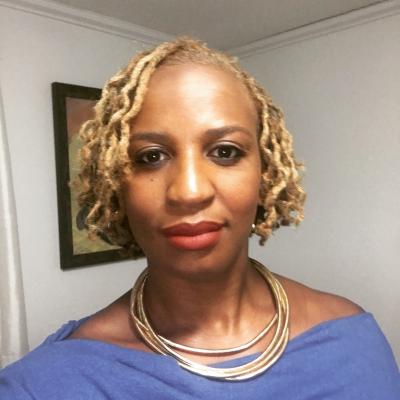
| 2004 PhD 1998 MA 1994 BA |
Temple University Temple University Brandeis University |
I am a scholar and an activist whose life work is to develop innovative solutions to the challenges facing the poor, particularly black mothers and their children. My work sits at the intersection of sociology, public health, public administration, and social work. I strive in my research, teaching, and practice to give those at the greatest risk for deleterious life outcomes their best opportunity and the resources to live healthy and productive lives. I identify, develop, and rigorously test promising community health programs and approaches that can create fundamental change in the circumstances of the lives of vulnerable people.
During the last decade, I have refined my research agenda, developed new research methodologies, expanded teaching skills, and bridged the gap between academic inquiry and public action. As a result, I have become a skilled researcher, an effective teacher, and a community change agent. My research focuses on mothers and children who are grew up and/or living in poverty. In addition to her academic work, I have extensive experience working with, evaluating and building collaborations among social service and community organizations.
Since 2011, I have served as the Founder and President of the GrassROOTS Community Foundation, a national pubic health and social action organization that supports, develops, and scales community-driven solutions to the health challenges facing women and girls living in poverty. With a cadre of social scientists, community organizers, and performing artists, GrassROOTS has garnered the attention of the White House and funding support from the Annie E. Casey Foundation, Robert Wood Johnson Foundation, Barnabas Health System, The Health Care Foundation of New Jersey, and GlaxoSmithKline for their community health programs in Philadelphia, Greensboro, and Newark, serving over 1000 people. In fact, Janice was among a select group of community leaders invited to First Lady Michelle Obama’s re-launch of her “Let’s Move” initiative.
Dedicated to making structural level changes, I work closely with policymakers to infuse academic research into public policy and advocate for more attention to be paid to the health and well-being of women and girls. I have served as an advisor to several government officials. In 2017, I served on New Jersey's Governor-elect Phil Murphy's transition committee on uban and reginal growth, and prior to that in 2015, I served as the co-chair of the public health transition team for Newark Mayor Ras J. Baraka. I also work closely with the City of Plainfield and Mayor Adrian O. Mapp in implementing strategies for youth engagement. In Philadelphia, I collaborated with Councilwoman Cindy Bass and State Representative Stephen Kinsey on public health initiatives in the Germantown neighborhood. Additionally, I have presented her work on violence as a public health issue to the US Conference of Mayors.
I am a nationally recognized public speaker. In my talks, I use humor to raise awareness and demonstrate the interconnection between poverty and health and its impact on children. In 2017, I was listed among Forbes “What's The Next Trend In Leadership? Black Women” as an outstanding speaker and a woman to know. Drawing on my multiple published peer-reviewed academic papers on health, women and poverty, I deliver academic-driven data in a relatable, accessible way, engaging audiences while informing also them. I have spoken to a wide range of organizations, including many colleges and health institutions across the United States including New York Academy of Health, New York Department Health and Hygiene, Howard University, Bennett College, as well as Brandeis and Duke universities.
My most important public talks focuses on equity as well as the need to train and develop girl changemakers by investing in girls and amplifying their voices and ideas.
A former U.S. Army Reservist, I have been honored by Zeta Phi Beta as one of their “Woman of the Year,”as well as the University of Michigan for community service and the Carma Foundation for community activism. I have also received the Freedom Award from the Human Relations Commission from the Town of West Orange. My justice work and community research story has been spotlighted by the Robert Wood Johnson Foundation, The Philadelphia Inquirer, and CBS News. My most recent work supporting the need for diverse literature through my daughter Marley Dias and the #1000BlackGirlBooks campaign has been featured in the Wall Street Journal, Teen Vogue, Forbes, New York Times and on CNN and many national and international outlets.
I live in New Jersey with husband, Scott and daughter, Marley.
Johnson Dias, Janice and Robert Whitaker. (2013). Black mothers’ perceptions about urban neighborhood safety and outdoor play for their preadolescent daughters. Journal for the Health Care of the Poor and Underserved, 24 (1), 206-19.
Johnson Dias, Janice and Gregory Price. (2012). The incredible shrinking black woman: Health and policy implications. Review of Black Political Economy 39 (4): 381-388.
Johnson Dias, Janice and David Elesh. (2012, March). Structuring performance: The impact of state contracts on for-profit and nonprofit welfare-to-work programs. Social Service Review, 86 (1), 143-168.
Johnson Dias, Janice. (2011, September). Review of The new welfare bureaucrats: Entanglements of race, class, and policy reform, by Celeste Watkins Hayes. Social Service Review, 85 (3), 513-516.
Johnson Dias, Janice and Steven Maynard-Moody. (2007, April). For-profit welfare: Contract, conflicts and the performance paradox. Journal of Public Administration Research and Theory, 17 (2), 189-211.
Johnson Dias, Janice and Chitra Raghavan. Does race matter? An analysis of child welfare investigations and custody awards. (Revise and resubmit to Family Relations.)
Johnson Dias, Janice. Intergenerational transmission of fear: The role of mothers’ history of violence and its impact on daughters’ outdoor play. (In progress.)
Johnson Dias, Janice, Nicole Rousseau, and Annmarie Singh. Black single mothers as sexual deviants. (In progress.)